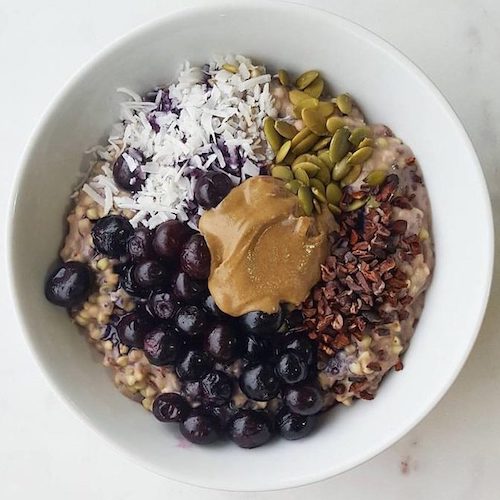
Iron is an important mineral that must be consumed regularly as our bodies cannot produce it on its own. Iron can come from a variety of meats, shell fish, vegetable and quinoa – to name but a few – but who would have thought that it was possible to consume too much?
Mary Jones is the co-founder & editor-in-chief at TopMyGrades and has written an informative article for us explaining just that.
Iron is a vital mineral, which can be found in abundance both in the body and around us. One of the first things that your dietician would tell you is to include green leafy veggies in your diet. Green vegetables help in the production of haemoglobin in the body.
Too much of a good thing however can ultimately have harmful consequences and iron is no different. Iron overload is a real thing, contributing to the production of toxins in your body, however, we have a natural defence mechanism to protect internal organs from damage. The trouble starts when this hormone depletes, and there’s more iron than required.
What is Iron Toxicity?
Iron is an essential part of haemoglobin and affects the production of RBCs in your bloodstream, however the body requires only a little bit to function optimally. The natural absorption levels of iron are approx 2mg a day. Have you ever experienced severe stomach cramps after gobbling down oysters and clams for dinner? Chances are you are suffering from iron overload.
There are two main types of dietary iron present in the human body. Heme iron is found in red meat and is easier to absorb. The second type is non-heme iron found in both plants and animals. A lack of non-heme iron causes iron deficiency and weakness.
Under natural circumstances, the body has a mechanism to regulate the iron content in your blood. The digestive tracts secrete a hormone Hepicidin for tracking and reducing the iron levels. Hormonal imbalances and disorders however can hamper the secretion of Hepcidin. Whether you’re a college student looking for diet tips or a housewife wanting to be healthy – this is for you.
Reasons for Iron Overload
Iron tablets are always prescribed to women to regulate their blood pressure and oxygen supply however, an overdose of these dietary supplements can be unhealthy for your body. The little amount of iron that is present in your blood is usually attached to proteins. There is a minimal amount of iron that exists freely – low production of Hepicidin can cause a deficiency or overload in the body. The lack of this hormone increases the levels of free iron in your body and high iron contents lead to the production of toxins.
There have been multiple studies that showcase how iron poisoning can is linked to cancer. Iron supplements trigger the formation of cancer-causing compounds in the digestive system. It is therefore imperative that we detect the issue and treat it ASAP. Some of the main reasons for iron overload are:

Iron Poisoning in Kids
Iron poisoning can also affect children as iron tablets can be taken to help with growth and development. Consuming a lot of iron can lead to stomach cramps, increased blood pressure and other issues however so always consult your doctor or paediatrician before you give your child any such supplements.
Even single doses that are as low as 10-20mg can cause severe symptoms but if the dosage is above 40mg, see a doctor immediately. Excessive iron can lead to stomach ailments, nausea, vomiting and even permanent damage to the internal organs. Watch your daily routine for a healthy lifestyle
Gender and Ethnicity
As the iron accumulates over the internal tissues, the risk of arthritis, liver issues, cancer, diabetes and heart problems increase. The body doesn’t have a natural way to get rid of excessive iron. Males are more likely to be affected by this condition than women because women lose blood every month, regulating the iron content. Menstruating women, therefore, havethe least risk of iron overload although are more susceptible to iron deficiency.
Middle-aged people are also vulnerable to the condition. With age, the iron supplements in your diet also increase. Also note that people of British, Dutch, German, French and Scandinavian ancestry are at a higher risk.
Hereditary Causes
Inform your doctor about any similar cases in your family for if you have iron poisoning despite being on a healthy diet, then chances are it runs in the family. The iron load can have genetic causes as well. Hereditary hemochromatosis is a condition where the body’s natural ability to curb iron absorption lessens drastically.
Whatever you eat, your body would take in all the iron content from it without any monitoring. Acute iron poisoning requires immediate medical attention, as more and more iron accumulates in the internal organs, the chances of damage increase. Excessive iron can cause fatal damage to the liver and brain.

Dietary Iron Overload
The third type of iron toxicity, aka the African Iron Overload. It was a condition that a significant section of people in Africa suffered from. People suffered from excessive iron absorption because of consuming homemade beer. The concoction was prepared in cast iron pots and hence had a relatively high iron content in it.
Patients suffering from this condition have to often be on a rigorous diet. Even the utensils used for cooking and eating your meals have to be regulated. Ensure that you are not eating in iron or steel plates.
Preventive Measures to Reduce Iron Overload
Iron, when taken in small quantities, works wonders for your body but an unregulated supply of iron can create quite a few problems for you. It is better to be safe than sorry by being more productive, exercising more and staying active. Watch what you eat, how is it prepared and how it would affect your physical and mental well-being.
The first step to curb iron overload is to reduce iron-rich food and supplements in your diet. Another way out would be to donate blood frequently. It is a natural way for the body to flush the excessive iron out. Also, avoid cast-iron dishes and utensils as food can absorb the minerals from these containers.
Iron is an essential mineral when taken in small quantities. Iron overload is a seemingly rare issue that not a lot of people worry about however, if you have any of the signs mentioned above, do not hesitate to visit a doctor. The issue can get quite dangerous if left undetected and untreated.
Author’s Bio
MARY JONES is the co-founder & editor-in-chief at TopMyGrades which focuses on Content Marketing Strategy for clients from the Education industry in the US, Canada & UK. Mary has conducted a series of webinars for AssignmentEssayHelp. She has extensive content editing experience and has worked with MSNBC, NewsCred & Scripted. She has also authored blogs on Lifehack.org, Wn.com, Medium.com, Minds.com and many more digital publications.



About The Author: Callumfatweb
More posts by Callumfatweb